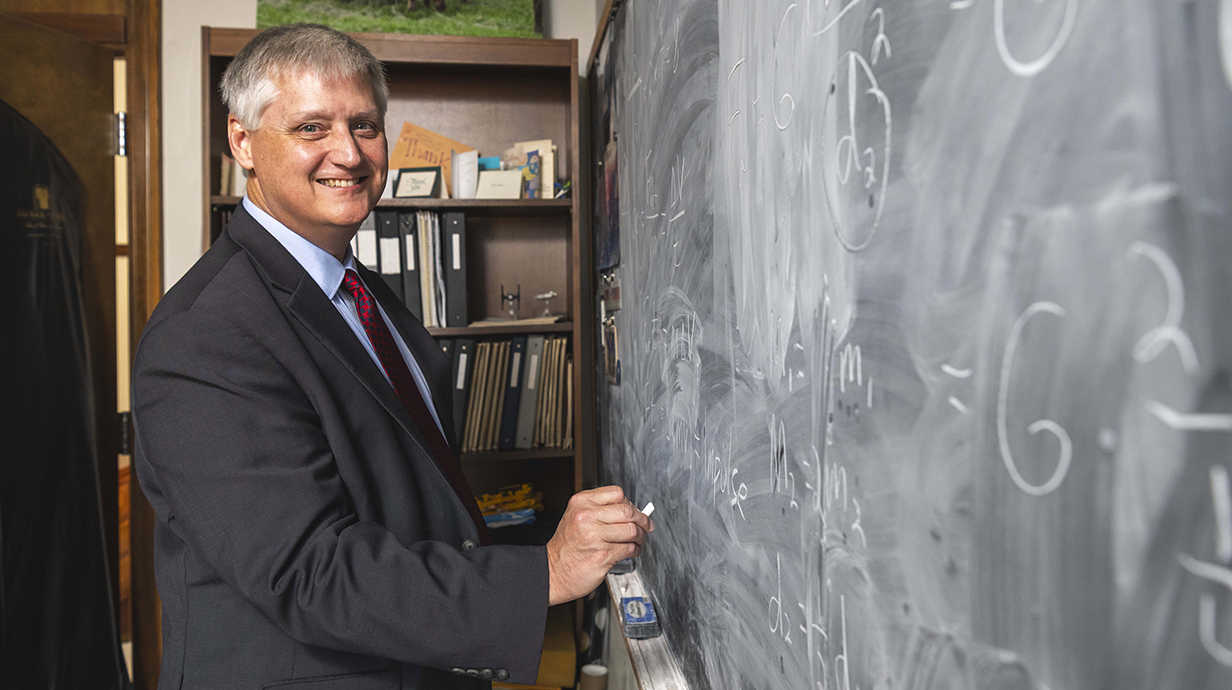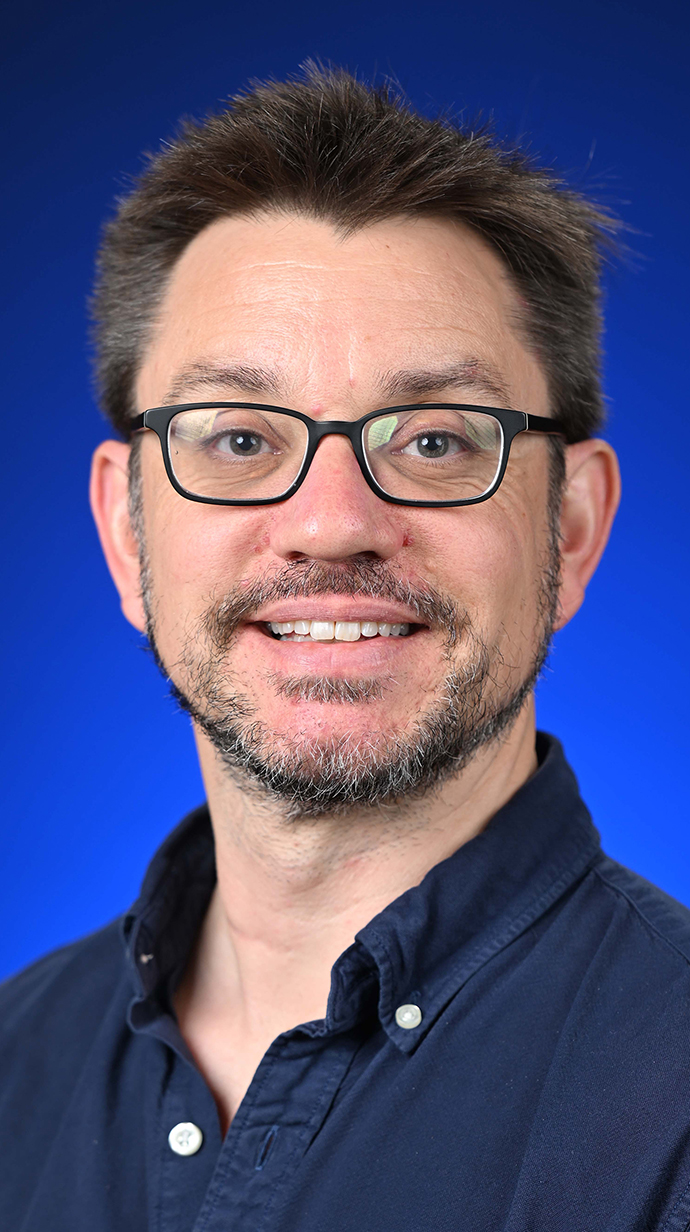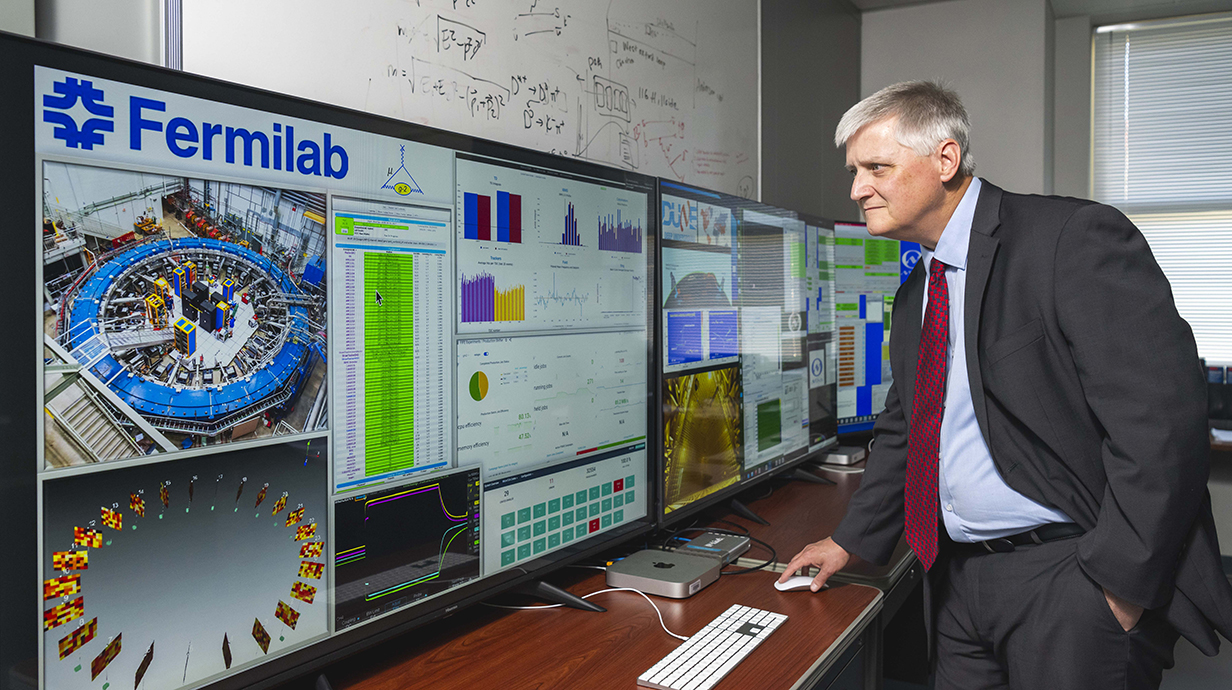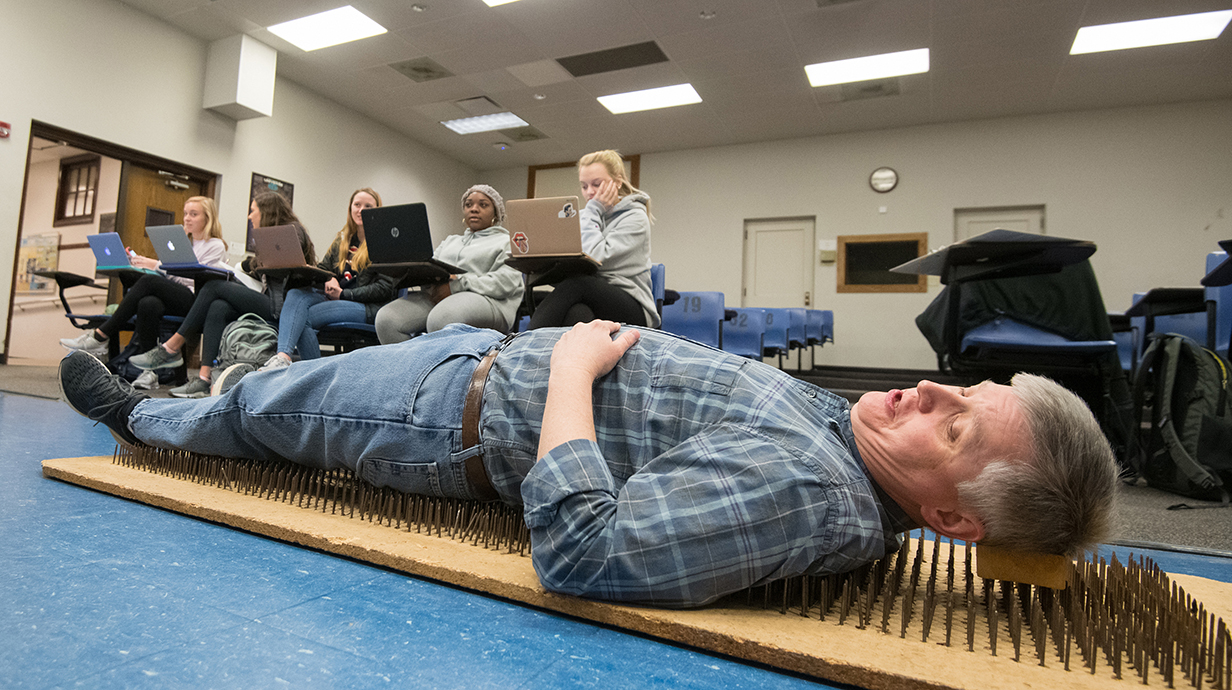Professor Earns National Fellowship for Leadership in Physics
American Physical Society recognizes Breese Quinn's leadership, advocacy

OXFORD, Miss. – In 1987, Breese Quinn was among 50 high school students who spent two weeks learning about advanced physics at the Department of Energy's Fermilab. There he heard Nobel Prize-winning scientists discuss how their work helps shape our understanding of the world.
"I remember thinking, 'Yeah, this is what I'm going to do,'" he said.
Nearly 40 years later, Quinn has been recognized among the top physicists in the world.

The American Physical Society elected the University of Mississippi professor to its 2025 fellowship program, a selective honor that recognizes exceptional service to the physics community. The fellows were announced Friday (Oct. 10).
"Dr. Quinn has had an incredible career," said Kevin Beach, chair and associate professor of physics and astronomy. Beach and Harvey Newman, professor of physics at Caltech, nominated Quinn for the award.
"It seemed like the logical next step was to make sure he was recognized at the national level. In our discipline, one of the biggest accolades is being named a fellow of the American Physical Society, and it's extremely competitive."
The society selects only 0.5% of its total membership – more than 50,000 physicists worldwide in 2025 – to be recognized as fellows. Quinn, professor of physics and astronomy and director of the Center for Multimessenger Astrophysics, joins a roster that includes numerous Nobel Prize winners, including all five of those who spoke to him in 1987.
Quinn studies high-energy physics, which explores the most fundamental particles of matter and energy in the universe and the forces that govern their actions. Quinn has worked with Fermilab, a particle physics and accelerator laboratory near Chicago, nearly consistently since that first high school internship.
Through his work there and at Ole Miss, Quinn has contributed to landmark experiments, including setting the new global standard for precision in measuring the movement of subatomic particles called muons. In 2024, he became the first Mississippian to be named to the Department of Energy and National Science Foundation's High Energy Physics Advisory Panel.

Breese Quinn has been working with the Department of Energy's Fermilab for nearly 40 years, since a high school internship in 1987. Photo by Srijita Chattopadhyay/Ole Miss Digital Imaging Services
Earlier this year, Quinn also received the Distinguished Research and Creative Achievement Award, the university's top honor for a faculty member who has achieved national or international recognition for their work. Quinn served as the co-convener of community engagement in the 2021 Snowmass Community Planning Exercise, which charted the next 10 years of the United States' particle physics research program.
But the fellowship recognizes another facet of Quinn's work.
"He's been a huge advocate for the high-energy physics community," Beach said. "He's spent years meeting with House and Senate appropriations staff and politicians, making the case for American high-energy physics.
"He's widely recognized as the key person who's carried that burden."
Since his arrival at Ole Miss in 2004, Quinn has made more than 900 congressional office visits and explained to representatives, senators and staffers alike the need for federal support for research that advances society's understanding of the universe.

Breese Quinn lies on a bed of nails in his classroom to demonstrate concepts of force for students. Quinn has been selected as a fellow of the American Physical Society, recognizing him as one of the world's top physicists. Photo by Kevin Bain/Ole Miss Digital Imaging Services
"High-energy physics lets us ask the big questions: what's the universe made of, how is it all put together and how does it work?" he said. "But everything we do in this field – all the data, the discoveries, the results – none of it belongs to us. It belongs to everyone who's paying taxes and graciously allowing us to do this work on their behalf.
"It's their science, and we have a duty, a responsibility and a privilege to share what we're doing and why it matters."
Quinn's fellowship is in the Forum on Physics and Society division, which highlights those who have contributed to the intersection of physics and the public sphere.
In this area, too, Quinn has a long history. A few months after his summer at Fermilab in 1987, Quinn was invited to Washington, D.C., to speak to representatives about the work the students did and why it mattered.
"It's funny," he said. "Now that I think about it, I guess it started all the way back then."
Top: Breese Quinn, professor of physics and director of the Multimessenger Astrophysics Center, joined Ole Miss in 2004 and has been internationally recognized for his work in high-energy physics. He is among this year's fellows elected by the American Physical Society. Photo by Srijita Chattopadhyay/ Ole Miss Digital Imaging Services
By
Clara Turnage
Campus
Office, Department or Center
Published
October 10, 2025
